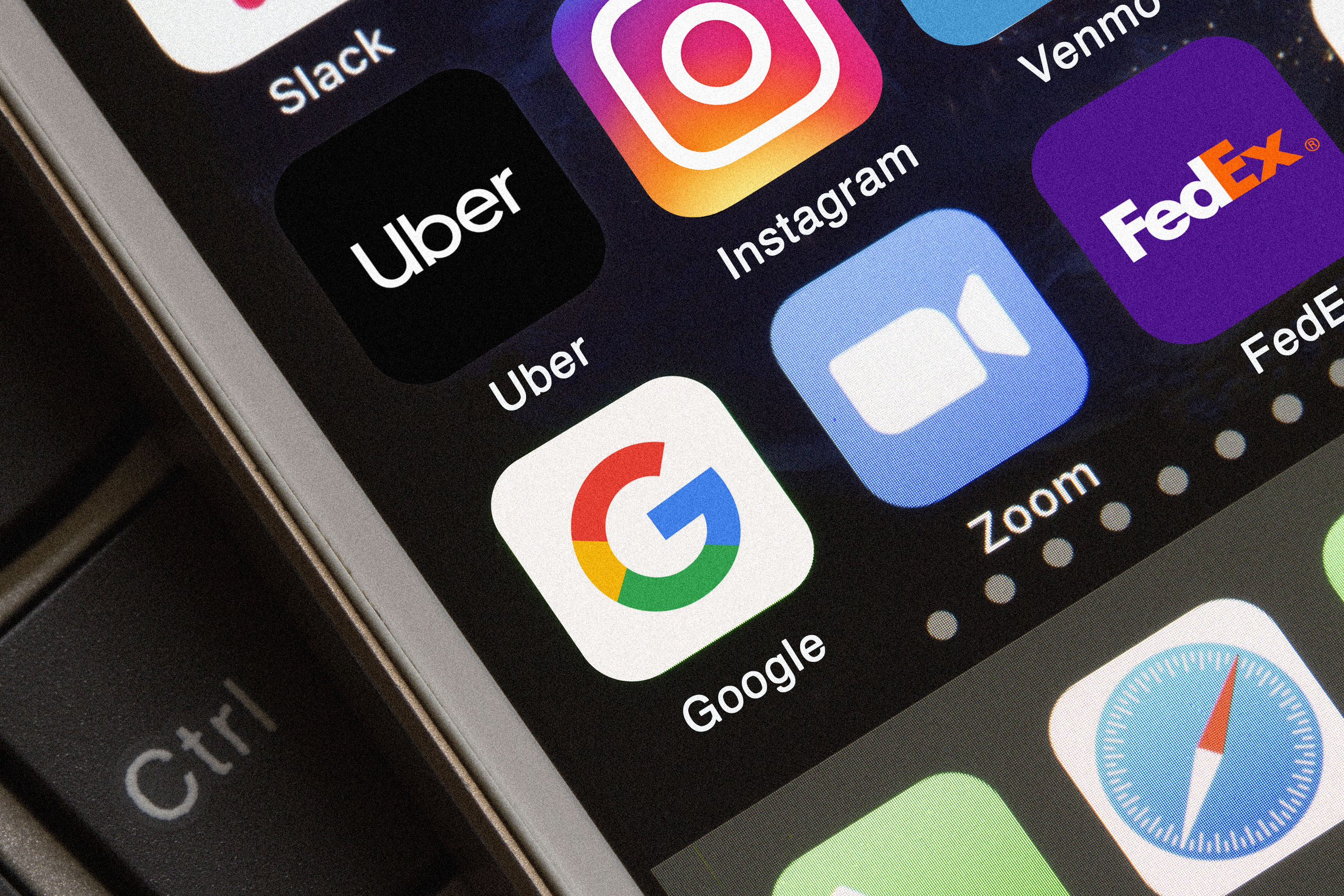When something becomes so ubiquitous that the noun becomes a verb, this by definition is an indication that we have changed how we do things in the world. If you get a cut, you may ask for a Band-Aid. A cold may have you reaching for a Kleenex, and dry winter weather may call for Chapstick. These are just three examples of how many brands have taken such a significant role in the mainstream vernacular that the brands themselves have become synonymous with unbranded products.
These brands have become the epitome of their respective industries, and they clearly illustrate that as brands become more and more popular, their names often become ubiquitous. But a brand becoming the symbol, if not nameplate, for every product of its kind, still does not hold the same effect as a noun becoming a verb.
In linguistics, this is called a “conversion”, a kind of word-formation where an existing word takes on a new classification. This is more common than you might assume throughout the history of the English language, as words naturally change over time in response to cultural changes and slang. Verbing nouns have existed for centuries. Prime examples include language like, “We need to book the flights”, or “Let’s table this discussion for later.” But this anthimeria seems to hold the highest honor for companies, brands, or platforms that have become so popular and essential to humankind that they are deemed the embodiment of their function.
Over the years, popular platforms, like Uber and Photoshop, have held this honor, and as of 2006, FedEx is officially listed as a verb in the Merriam-Webster dictionary. The transitory nature of the English language is a reflection of society’s transformation, and brands are playing an ever-larger role in those transitions.
These things matter because they reflect how we are changing as a society. Nouns becoming verbs serves as a poignant metaphor for the evolution of the economy and our world at large. Essentially, it’s a picture of how things change. They are a reflection of deep, structural changes to the way we do life and business. Few nouns that became verbs encapsulated this concept as significantly as Google did.
“Did you Google it?”—How Modern Technology Tools Change Our Vernacular
Arguably one of the most popular nouns to become a verb, Google is synonymous with—and potentially even more prevalent than—the word “search”. In our digitally-dominated world, Google still takes the gold for the online platform most integrated into our vernacular.
Google’s original mission was to help organize all of the information on the newly dubbed “world wide web”. It officially went to market in 1998, and by 2004, they were already one of the world’s largest media companies. At this point, they were already hugely popular and well on their way to becoming an essential tool in everyday life. The American Dialect Society named Google, a transitive verb, “the most useful” word of 2002, and the Oxford English Dictionary included the word in their lexicon in June of 2006.
Many young millennials and Gen Z cannot fully grasp the significance that the dot com bust, the invention of the world wide web, and the popularization of email had on our society because they’ve never had to live without it. Before 1999, you had to communicate with friends, family, and coworkers alike in person, through letters, or by landline. Google changed the way we communicate and do business forever. It’s now even further integrated into our lives than it was at its genesis—I’d be willing to bet you checked your Gmail account this morning or have read something on a Google Doc within the last week.
“I’ll Just Venmo You the Money”
Here’s how we changed our behavior around the way we pay one another. In previous decades, splitting the bill at a restaurant was a more complex occurrence. People had to pull out cash, discuss who was paying for what and tie each amount to various credit or debit cards, or mail a check the following day. Now, Venmo has transformed the way we deal with interpersonal payment. Gone are the days of having to hound our friends to pay us, only to hear them say, “the check is in the mail.”
Venmo married the basic concept of social media with a comprehensive financial exchange platform. Established in 2009, the app gives friends and family a digital method for exchanging money without passing around cash or writing checks.
At first, people were uncomfortable and unfamiliar with this new way of exchanging money. But millennials, in particular, adopted the app at record speed, realizing how much easier it made activities like splitting the bill or going in on a joint birthday gift for a friend.
Now, Venmo dominates payment apps as the primary way friends exchange money, even in the midst of competitors like Apple Pay.
“I’ll Just Uber There” – How Modern Technology Changed Transportation
The way Uber transformed transportation is so important because technology actually changed our behavior and relationship with transportation. If you rewind the tape to ten years ago (or more), we had a choice of taxi, bus, train, or driving our personal vehicle when trying to get around an urban environment. Now, we’ve become so accustomed to pulling out our phones to deal with a problem that Uber often seems easier than any of these other options.
For years, the car-less or those who preferred not to drive had just one option to get to their destination via car—taxi cabs. But taxis were largely confined to major cities and were beholden to requirements and limitations placed upon them by the municipalities they operated in. Then, Uber entered the scene and disrupted the taxi industry by introducing tech to ride-sharing.
Have you ever landed at an airport where there was a line of taxis waiting outside (like Laguardia), but you still opted to take an Uber? This is further proof that Uber has become the foundation of our mindset around urban transportation. We will wait for an Uber even if there is an empty cab right in front of us. It’s become a habit and a part of our behavior. The reliability, safety, and cleanliness of Ubers drew us in—even if the price is a little bit more than a taxi cab.
Now, friends tell you that they will “Ubering” to a location or to meet you for dinner. As the largest ride-sharing company in the world, they have integrated into more cities and become mainstream, and are now the go-to way of referring to a ride-sharing app.
The New Frontier of Communication
We’ve seen this concept play out in the way we communicate with our friends, family, and colleagues as well. Think about it this way—for many of us, apps like FaceTime, Slack, and WhatsApp (especially for those living outside of the United States) are now everyday tools we use to communicate with people all over the world.
FaceTime serves as a lifeline for many of us whose friends and loved ones live outside of driving distance. Slack helps companies communicate and do business effectively (we saw to what extent when they unexpectedly shut down a few weeks ago). WhatsApp is a global messaging platform that is, in part, so popular because you don’t need an iPhone to use it. All of these tools have now become verbs. How many of you have told a loved one, “I’ll FaceTime you later,” or asked a coworker to “Slack” you? We cannot ignore the fact that technology has become enmeshed in our everyday lives, and one of the truest ways to illustrate this enmeshment is through tracking shifts in language.
In fact, one of the most recent language shifts was directly tied to the life and work shifts that occurred due to COVID-19.
How Zoom Dominated the Pandemic
The pandemic changed many things about our way of life, and one of its earliest adjustments (where the English language is concerned) was making “Zoom”—an onomatopoeia (the sound something makes when it moves quickly) that became a verb (The car zoomed down the street), that became a noun (the brand, Zoom)—back into a verb, but with a completely separate meaning from the original verb context.
Zoom was released to the public in 2011 in San Jose, CA, as a video conferencing app. Zoom saw a remarkable global increase in usage during the pandemic and went on to dominate other video conferencing platforms. Entire companies, fitness classes, educational institutions, happy hours, and more took place via Zoom. This is not confined to the pandemic, as Zoom still sees huge levels of popularity today—it truly is the next noun to become a verb (or word to undergo a massive meaning shift given the word zoom’s multifaceted past).
Zoom played a pivotal role in our society’s interconnectedness during a turbulent time, and it continues to hold this position today. It is not a passing fad—online learning and the new work-from-anywhere model are here to stay. Zoom continues to play a huge role in the way we do business. It serves as an excellent example of structural change during a cataclysmic time in society.
The world is always changing. Some societal trends don’t simply come and go—through their integration into our life and language; they change the way we see things and communicate as a whole. Many of us simply cannot envision the last two years without platforms like Google and Zoom. Leaders must pay attention to future technologies or businesses that have the potential to shift our landscape in such a significant way in order to become early adopters and, ultimately, play a more significant role in the marketplace.







